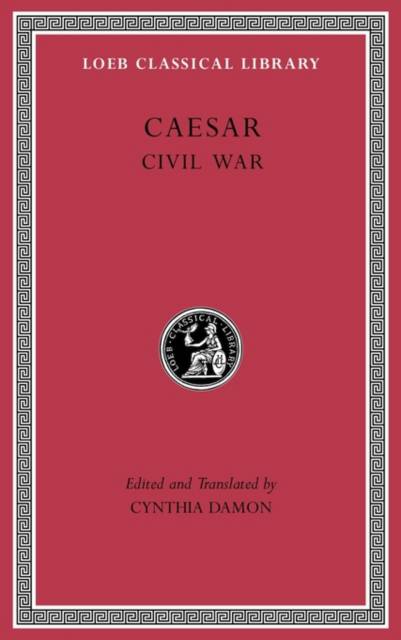
- Retrait gratuit dans votre magasin Club
- 7.000.000 titres dans notre catalogue
- Payer en toute sécurité
- Toujours un magasin près de chez vous
- Retrait gratuit dans votre magasin Club
- 7.000.0000 titres dans notre catalogue
- Payer en toute sécurité
- Toujours un magasin près de chez vous
Description
The struggle that ended the Roman Republic.
Caesar (C. Iulius, 102-44 BC), statesman and soldier, defied the dictator Sulla; served in the Mithridatic wars and in Spain; entered Roman politics as a "democrat" against the senatorial government; was the real leader of the coalition with Pompey and Crassus; conquered all Gaul for Rome; attacked Britain twice; was forced into civil war; became master of the Roman world; and achieved wide-reaching reforms until his murder. We have his books of commentarii (notes): eight on his wars in Gaul from 58-52 BC, including the two expeditions to Britain in 55-54, and three on the civil war of 49-48. They are records of his own campaigns (with occasional digressions) in vigorous, direct, clear, unemotional style and in the third person, the account of the civil war being somewhat more impassioned. This edition of the Civil War replaces the earlier Loeb Classical Library edition by A. G. Peskett (1914) with new text, translation, introduction, and bibliography. In the Loeb Classical Library edition of Caesar, Volume I is his Gallic War; Volume III consists of Alexandrian War, African War, and Spanish War, commonly ascribed to Caesar by our manuscripts but of uncertain authorship.Spécifications
Parties prenantes
- Auteur(s) :
- Traducteur(s):
- Editeur:
Contenu
- Nombre de pages :
- 464
- Langue:
- Anglais
- Collection :
- Tome:
- n° 39
Caractéristiques
- EAN:
- 9780674997035
- Date de parution :
- 23-05-16
- Format:
- Livre relié
- Format numérique:
- Genaaid
- Dimensions :
- 117 mm x 163 mm
- Poids :
- 317 g

Les avis
Nous publions uniquement les avis qui respectent les conditions requises. Consultez nos conditions pour les avis.






